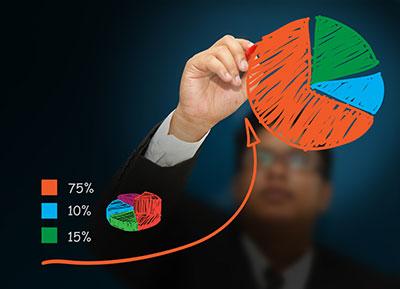
In this post, I am sharing a column written by a student in the Southern Oregon University Master in Management program who also happens to be editor of the editorial page of the Salem, OR, Statesman Journal. Give this a read; I’ll share my reflections at the end. Enjoy.
Hughesisms: Work Ethic Trumps Talent
Written by Dick Hughes, statesmanjournal.com
Need a Laugh?
I consider myself fairly smart … in some ways.
Thus it was disconcerting last week when I heard people of average intelligence outperform people with high IQs 70 percent of the time. But that statistic does not surprise me. As a friend at a high-powered think tank in Washington, D.C., once told me, “We have bright interns, and we have hard-working interns. Rarely are they the same.”
Another relevant statistic: Emotional intelligence is twice as important as expertise in almost any job. That assumes, of course, that the person in the job has at least the minimum level of competence. From then on, it’s all about the person’s work ethic and ability to work with others.
This is true in hard science, social science, business, nonprofits and government. Success in life comes down to relationships.
The good thing is you can expand your emotional intelligence if you work at it.
Some politicians and community activists mistakenly think their ideas are so brilliant that others will automatically see the inherent wisdom of them and embrace them. Wrong-o. You have to be able to sell your ideas, which means having established trust, understanding and rapport with your audience.
The private sector is the same.
I was academically smart but also was the kid who, starting during kindergarten naptime, was always in trouble for talking too much and being disruptive because of my boredom in class. In retrospect, I firmly believe my career was set back at least five years because I had not yet learned to truly work hard, to be disciplined in my use of time, to collaborate with others and to combine self-confidence with a striving for humility. (I know; “trying to be humble” seems like an oxymoron.)
Academics came so easily that I achieved good grades without needing to learn and employ those essential traits, despite the best efforts of my teachers and parents. (That also could explain why Stanford University rejected me three times, twice putting me on wait lists. I’M NOT BITTER ANYMORE. But I digress …)
Note from Chris Cook
This winter, I am teaching a Southern Oregon University course on emotional intelligence (EI) for a cohort of working professionals in Salem, OR. The author of this editorial is a member of that cohort, and I enjoyed how he made the connection between our exploration of EI and his life’s work experience.
How do you see the applicability of EI in your life—as a working professional, family member or community leader? Please share your stories here.
Printed with permission of the Statesman Journal.





